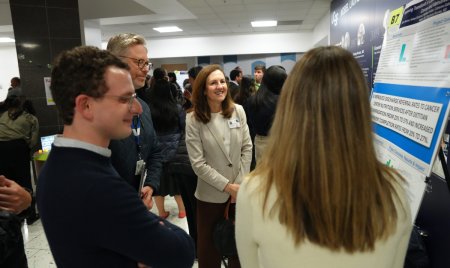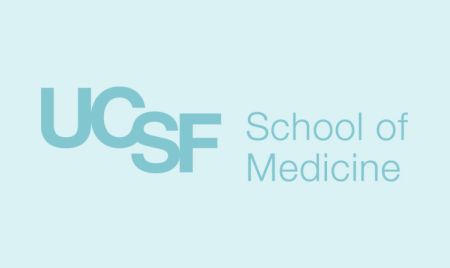A Chat with John Young, MD, MPP, PhD, Education Showcase 2023 Keynote Speaker
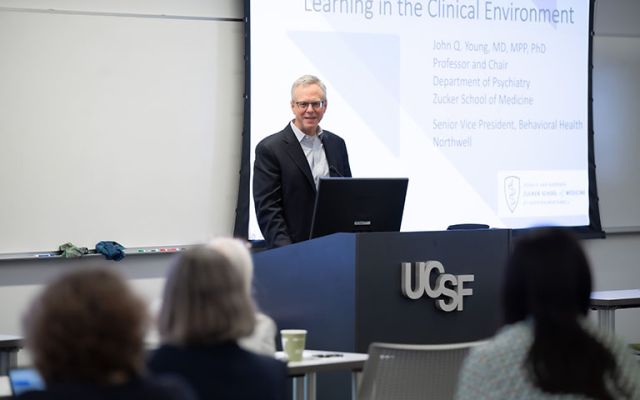
Man centered behind a podium in classroom with white background
This year’s Education Showcase keynote, Dr. John Young, invited us to revisit the importance of considering Cognitive Load Theory (CLT) for the learning environment. Dr. Young shared his experiences using CLT in the clinical learning environment at his institution and presented his ongoing research of how CLT provides a framework to improve the learning experience, reduce learner fatigue and stress, and improve patient care. Dr. Young also presented next steps in his CLT work that consider further the effects of emotion in cognitive learning.
He's been at his research for a long time, and we wanted to get a snippet of his experiences in CLT research and some motivations that keep him going:
Working in this research for a long time, can you share your favorite Success Story or "Aha" moment when you felt you were on the right track?
[Young, John Q] Doing good research is hard. It takes time, patience, hard work, attention to detail, planning ahead. The "Ahas" are often long in the coming. So, perseverance is so key. One aha moment for me was when I had published say a fourth or fifth article on the same topic and I started to see how my research was building on itself and starting to form a larger story and to connect with larger stories. That is a cool moment.
What were some key challenges or barriers you have met in your CLT research? How were you able to overcome these?
[Young, John Q] As I shared in my talk, my first two studies attempting to develop a measure of cognitive load types failed. We kept going and the third time we had success. The key was mentors and colleagues and collaborators who helped me keep ‘hope alive’ and to step back and look at what we need to do differently.
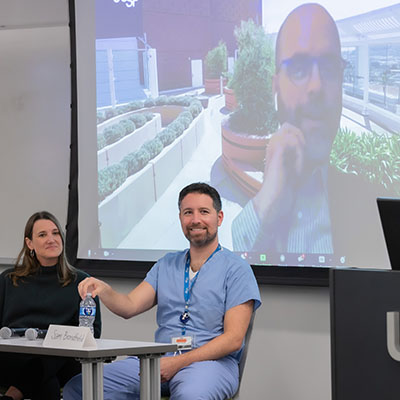
In addition to your keynote, you took part in a great panel session where several research projects by educators at UCSF and abroad: Justin Sewell, MD, PhD (UCSF), Sam Brondfield, MD, MA (UCSF), and Lynnea Mills, MD (UCSF) and Sarah Blisset, MD MHPE FRCPC (Western University, Canada) incorporated or considered CLT in their work. Where there any surprises or ideas you’ll take back to your institution?
[Young, John Q] At this point, we have made great progress in developing evidence for validity for measures of cognitive load types for very specific activities such as a patient handoff or a colonoscopy or a consult. I’d like to explore whether it is possible to develop a measure of cognitive load types for a broad range of clinical workplaces.
You’ve presented your research to date, what is the next phase? You mentioned emotion as one potential area, what other themes are you thinking about now?
[Young, John Q] I’d like to explore whether interventions aimed at improving a trainee’s capacity to manage emotions (e.g., induce positive emotions and/or decrease negative emotions) result in lower cognitive load and ultimately reduced errors during handoffs.
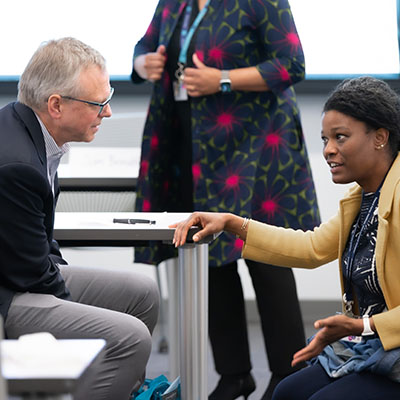
Lastly, what were some things you enjoyed on your return visit to UCSF?
[Young, John Q] It was so good to be back. I was a student, resident, and then attending here. I did my PhD in health professions education here. My formative mentors were all here. UCSF is my professional family of origin. I am incredibly grateful for all the ways this community has supported me and my development and, of course, for all of the ways that this community continues to advance innovation and discovery in medical education.
